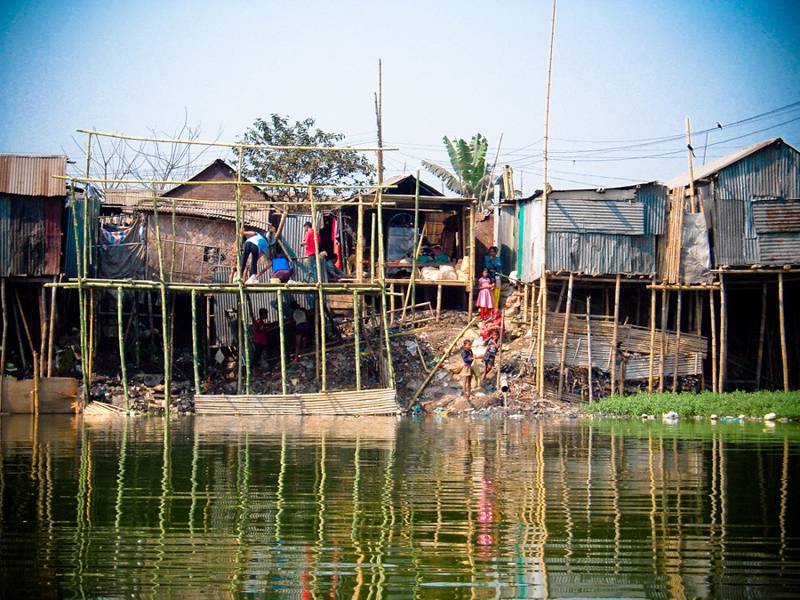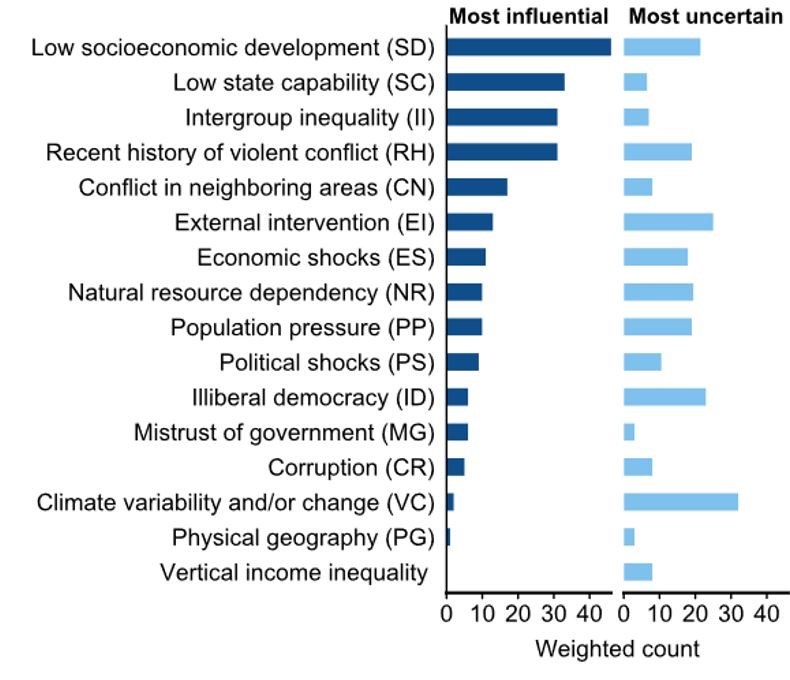
A new study publishedin the journal Nature today assesses the role of climate in affecting the risk of armed conflict. Unlike conventional empirical analyses, this study is based on expert elicitation, where the data material is derived from in-depth interviews and structured group discussions among an interdisciplinary selection of scholars on climate-conflict relations. These experts agree that climate has affected organized armed conflict within countries over the past century. However, other drivers, such as low socioeconomic development, intergroup inequalities, and low state capabilities, are judged to be substantially more influential, and the mechanisms of climate–conflict linkages remain a key uncertainty. PRIO researchers Halvard Buhaug and Nina von Uexkull took part in the elicitation and co-authored the study, which was facilitated by scholars at the Woods Institute for the Environment at Stanford University.
graph nature study.jpg






